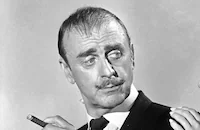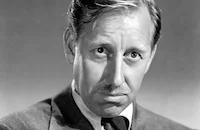- Jean-Luc Godard writing on Man of the West after naming it one of the ten best films of 1958."
Anthony Mann's Man of the West (1958) ranks in the top ten Western films of all time and remains one of the unsung masterpieces of American filmmaking for a number of reasons; it represents an exceptional studio director at the peak of his storytelling skills, it blazed new trails in telling the story for the genre, it introduced and reinforced new ways in which to think about the evolving West, and the film presented to audiences perhaps the most complex idea of a Western hero ever seen.
Man of the West presaged by four years two important movies in the genre Lonely are the Brave (1962), a film which personifies, in overt detail, the end of the cowboy's mythical status as the super-heroic traveler through the uncharted west, and Two Rode Together (1961) by John Ford. The latter announced the beginning of a new storytelling grammar in the Western which would lead to Sam Peckinpah's The Wild Bunch in 1969, signaling the end of the traditional form of the genre in American film. But Man of the West was instrumental, as so many of this director's westerns were, in creating a new path for the genre in which American audiences would now see the west: it was a place of uncompromising brutality, where flawed heroes were born only through a harsh, violent, and abnormal environment as the West slowly moved toward civilized society. It was Mann's psychological portrayal of the Western hero traversing this difficult terrain that contributes so powerfully to the innumerable qualities of Man of the West.
As for Gary Cooper, who has starred in a few of the best Westerns ever made, it was an impressive return to the genre for a man in his fifties. He had not made a Western for five years before accepting Man of the West. Commenting after the premier of the film, Copper said "Most Westerns are just Easterners with men wearing big hats. They're cops' n-robbers stories. I turn down 99 out of 100 offered me..." Cooper had a keen eye for accepting Western roles that could make good use of his natural talent the often delayed, pensive, Midwest charm which created instant sympathy with audiences. His Western roles were never the overly heroic, but the sensitively drawn and vulnerable characters who had clear kinks in their armor. In Man of the West, he made exceptional use of these skills to convincingly play a man with not only a dark past, but numerous shades of emotion - especially fear, shame, deception, tenderness, and violent rage.
A number of important elements in this film can be found in many of director Mann's earlier westerns. The hero is a loner, a social outcast with a checkered past that ultimately confronts him. He often has an evil twin, in this case played with great skill by John Dehner, his 'cousin' who represents Cooper's former self. Mann also makes use of landscapes and outdoor scenery not just as background, but as cinematic counterpoints to the characters in the story. A number of other ideas are also explored in this film which have clear antecedents and lines back to Mann's other westerns, and seeing Man of the West in conjunction with the Westerns' Mann made with Jimmy Stewart (Winchester '73 (1950), The Naked Spur (1953), Bend of the River (1952), The Far Country (1954), and The Man From Laramie, 1955) is to experience one of the finest compilations of any group of films ever created in a single genre.
One area of importance in Man of the West, and of Mann's westerns in general, is the director's signature but controversial use of violence. Where many other great Western storytellers such as John Ford, Budd Boetticher, and Delmer Daves used violence as a supporting dramatic note, Mann used violence to tell his story in often creative ways and, as a liberating force which not only frees the hero, but defines who he is. The extended fist fight between Gary Cooper and Jack Lord, Cooper's bleeding neck held by a knife as Lord forces Julie London to remove her clothes, the senseless killings of innocent bystanders, and the near continuous threat of violent death or rape by the Tobin gang are just a few examples. Whether one agrees with Mann on the nature of his use of violence is a matter of debate, but the viewer cannot watch Man of the West without feeling unsettled by the sheer force with which the director uses it to tell his story.
Mann was unable to realize his final western film an adaptation of King Lear, of which there are clear overtones in Man of the West. This great film was his final masterpiece in the genre, an enduring contribution to the American Western and an important achievement in American film.
Producer: Walter M. Mirisch
Director: Anthony Mann
Screenplay: Will C. Brown (novel The Border Jumpers)
Cinematography: Ernest Haller
Costume Design: Yvonne Wood (uncredited)
Film Editing: Richard V. Heermance
Original Music: Leigh Harline
Principal Cast: Gary Cooper (Link Jones), Julie London (Billie Ellis), Lee J. Cobb (Dock Tobin), Arthur O'Connell (Sam Beasley), Jack Lord (Coaley).
C-100m. Letterboxed.
by Richard Steiner
































